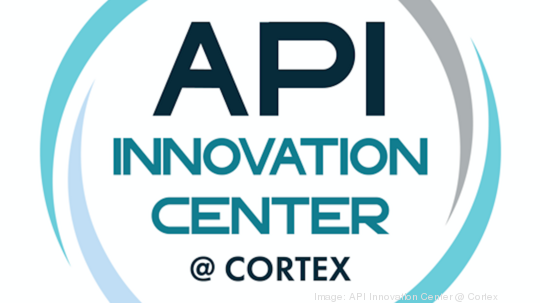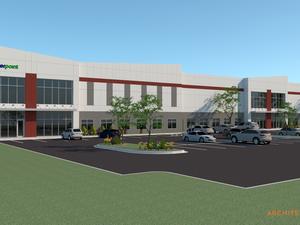
A St. Louis-based nonprofit organization focused on strengthening the U.S. supply chain for pharmaceutical ingredients is embarking on its first project, seeking to boost production of a drug to treat brain cancer.
The Active Pharmaceutical Ingredients (API) Innovation Center @ Cortex is leading an initiative to create a source of U.S.-produced API for lomustine, a chemotherapy drug used to treat glioblastoma.
Launched in 2021, the API Innovation Center is a nonprofit, membership-based organization that seeks to bring together businesses, researchers, academics and experts to find ways in which the U.S. can increase production of pharmaceutical ingredients. The API Innovation Center’s ambition extends beyond its lomustine project, with its Chairman and CEO Tony Sardella saying it has five-year targets of restoring 25 APIs and creating 225 jobs. So far, the new center has hired for six new roles and is recruiting for two open positions, Sardella said.
The first drug target, lomustine, is used to treat glioblastoma, an aggressive form of cancer the National Brain Tumor Society estimates will have about 13,400 diagnoses this year in the U.S. The cancer has a five-year survival rate of 6.8%, according to the organization.
Sardella said the API Innovation Center was drawn to lomustine because of the need to increase patient access to the drug. It currently has no U.S. manufacturer and is an expensive drug, with the Wall Street Journal reporting in 2021 that each capsule can cost patients up to $1,000.
“It had the right profile, both technically and volumewise, for us to start with this molecule,” said Sardella. “From here, we’ll be moving on to much larger categories of volume of drug APIs that will be far, far more significant in their production volumes.”
The API Innovation Center is working with the Glioblastoma Foundation and Continuity Pharma to source and manufacture lomustine in the U.S. Manufacturing technology developed by Continuity Pharma will be used to make the drug. Sardella said the St. Louis-based specialty generics unit of drug maker Mallinckrodt will produce lomustine using equipment developed by Continuity Pharma.
As part of the project, Indianapolis-based Continuity Pharma plans to bring its R&D facility to St. Louis. Co-founder and Chief Scientific Officer David Thompson said Continuity Pharma was attracted to the API Innovation Center because of its access to industry partners who could help it scale operations.
“We are developing new technology. We need partnerships and collaborations with companies that have long histories in pharmaceutical development,” Thompson said. “It brings an experience in the industry that we need to be able to tap into.”
As it seeks to bring drug manufacturing back to the U.S., Sardella said the API Innovation Center envisions itself as a convener and project manager, seeking to help partners de-risk R&D effort and early stage manufacturing of drug molecules.
“We’re getting it from R&D to scale to commercialization, and then we let the commercial partners take it from there,” Sardella said.
The API Innovation Center plans to help advance the R&D and manufacturing process by establishing a new, 17,000-square-foot manufacturing facility within the Cortex innovation district. The facility will include R&D labs and help scale up their manufacturing processes before moving operations to full-fledged manufacturing plants. Sardella said the API Innovation Center is in discussions to rent space at 4240 Duncan Ave.
The API Innovation Center is funded through membership dues paid by the nonprofit’s member organizatio, and also has received a major assist from the state of Missouri, which provided $10 million in grant funding to the organization. Sardella said the nonprofit is also exploring federal funds that could help advance its R&D and commercialization efforts.
While placing a focus on bringing drug production back to the U.S., Sardella said another tenet of the API Innovation Center’s strategy involves improving the efficiency of manufacturing pharmaceutical ingredients.
“We’re not just looking to bring manufacturing here. We’re looking to bring manufacturing to the United States through advanced manufacturing technologies. Technologies that reduce the cost significantly of the production so that it can be competitive and long-term sustainable,” he said.
Sardella said the lomustine project will move at a quick pace, with officials hoping production begins on the drug within the next 18 to 24 months. The timeline will be subject to U.S. Food and Drug Administration approvals, he said.











